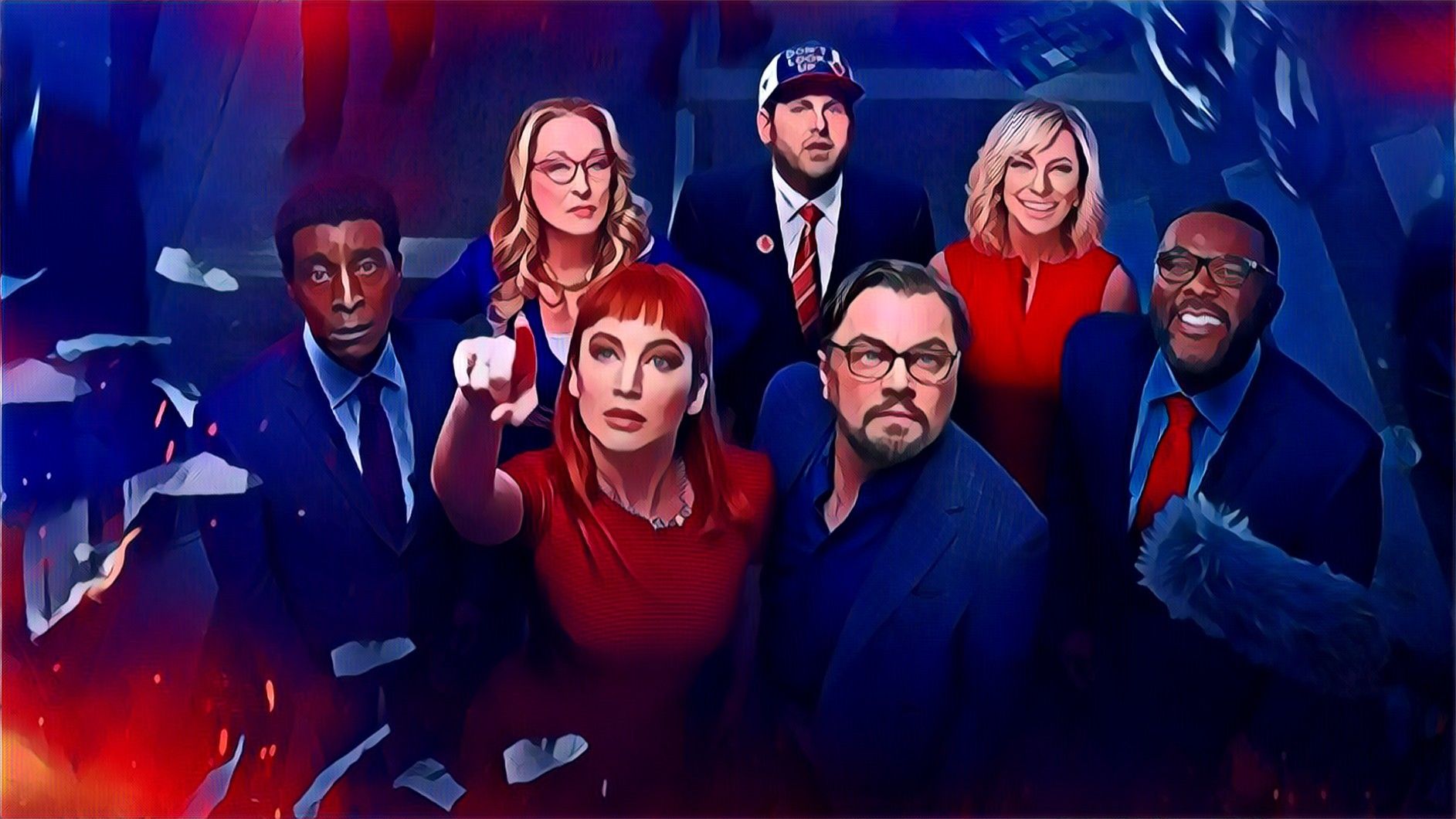Don't Look Up
*** SPOILERS ***
This piece contains spoilers to the movie, Don't Look Up.
Don't read this, if you don't want the movie spoiled.

Don't Look Up follows the scientists who discover a planet killer hurtling towards earth.
It ends with the impact of the planet killer.
In between, the scientists – a professor and graduate student – try to convince the powers that be to prevent the destruction of life on earth.
First, the president and various subordinates blow them off. Then, the president brings them back in to distract from a scandal. The administration decides to destroy the asteroid in cinematic fashion. At the last minute, the powers that be renege on this plan. A corporation takes on the task of destroying the asteroid after it is mining it for valuable assets. When one of the scientists objected to this plan, because it’s clearly dumb, the response was something like, "Oh no what if we're alive and rich."
I.
At the first layer of meaning, there are political implications. The populace and politicians are ignoring the threat of climate change. Both avoid evidence when politics and personal advantage get in the way.
It's a topical movie. The president is very much like a recent president in American history. The corporation is one of the primary funders of the president. The CEO looks like one of the Google guys. The media landscape reflects today's, with depictions of Morning Joe, conspiracy theorists, and science communication.
This reading depicts a cynical, but not entirely incorrect, left wing view of humanity, the internet, media, and politics. The film is about virtuous scientists, corrupt bureaucrats, sensationalist sociopathic media, and a denialist public.
II.
A more general reading, one that abstracts away from the particular, and sometimes heavy-handed leftism, communicates the same lessons.
Humanity faces existential threats. Link to Tweet.
We have not risen to the challenge. Our resources, whether in attention, dollars, or talent are largely spent elsewhere.
Don't Look Up is a description of what will happen if we stay on the current trajectory. If our culture and institutions continue running as they are, humanity's time will eventually run out. Instead of facing the chance of civilization's future doom, we prefer to seek petty advantages. We're selfish, irrational, and delusional. Our institutions reflect these traits.
III.
My preferred reading of Don't Look Up is that it's a meditation on the human love of spectacle and the inability to face reality. Our attention moves away from external reality and into ourselves. American life is about narrative and performance.
The politicians, entrepreneurs, and ignorant populace of Don't Look Up exemplified this with their blindness. But so too did the scientists. Instead of preventing the end, it happened.
They fumble about the media and political landscape. They had 64 days, like the disciples on Gethsemane, they slept through many of them. Both start new love affairs.
But apart from the characters, the movie is about us. We immediately go to the first reading of the film. The one with easy enemies we're familiar with. Presidential clowns and greedy capitalists. Heavy-handed plotlines written by clueless liberals.
What the film avoids are the boring details. What would it take to get this done? The scientists move to effect change through celebrity. There is no consideration of the tactical or technical details concerning existential risks. Interesting epistemic questions about who to trust and who to ignore are largely overlooked.
On this reading, the superficiality of the film is intentional. It's a way of accosting the viewer. The person who spent 2 hours watching a movie.
The movie ends with one of the scientists saying "at least we tried" – but appearances aren’t what matters.